Discover the benefits of our lens coatings options
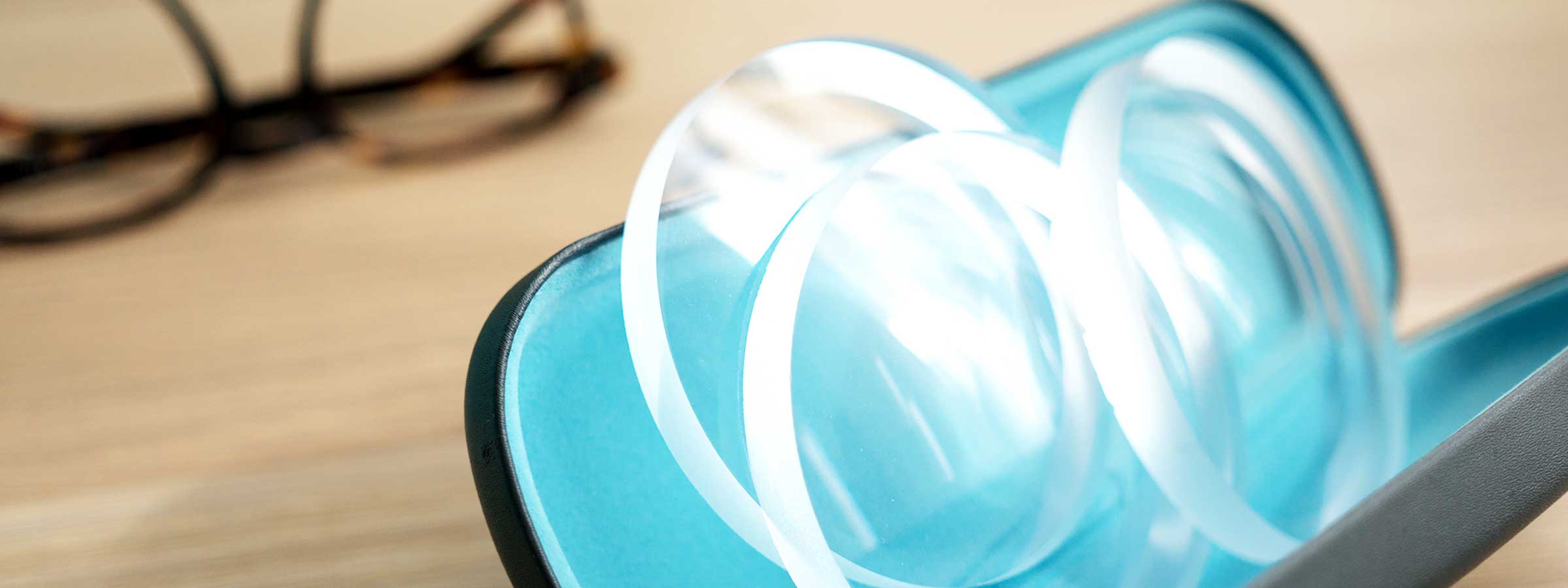
Ensure you get the most out of your new glasses with great benefits like UV protection, scratch-resistant and anti-reflection coatings. Find out more about the different lens coatings to help you find the perfect one for your needs.
Hard coat
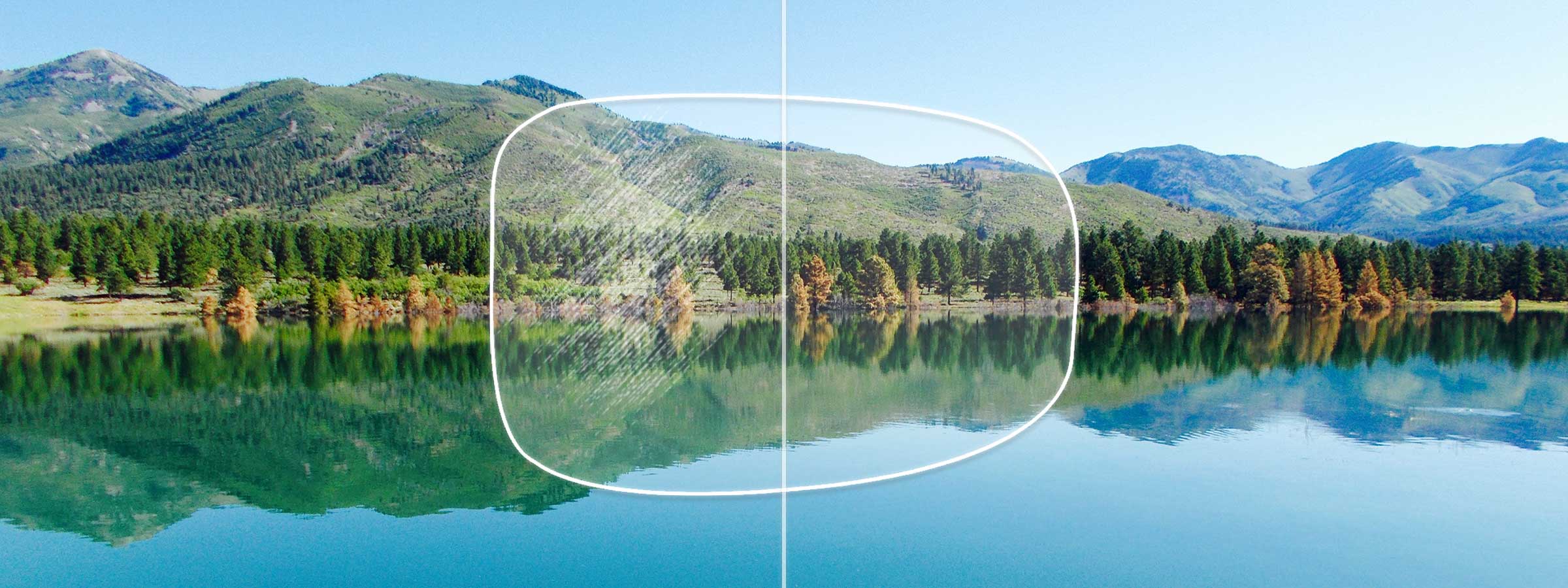
A hard coating is a clear film applied to the lens surface to make it much more scratch resistant. It shouldn’t be considered as anti-scratch, but will protect the lens surface from minor abrasions such as occasionally cleaning them with a tissue, though we’d always recommend you clean them with a special glasses cleaning cloth.
All thin lenses come with a scratch resistant coating as standard, as do Transitions® and polarized lenses.
Anti-reflection – basic and super
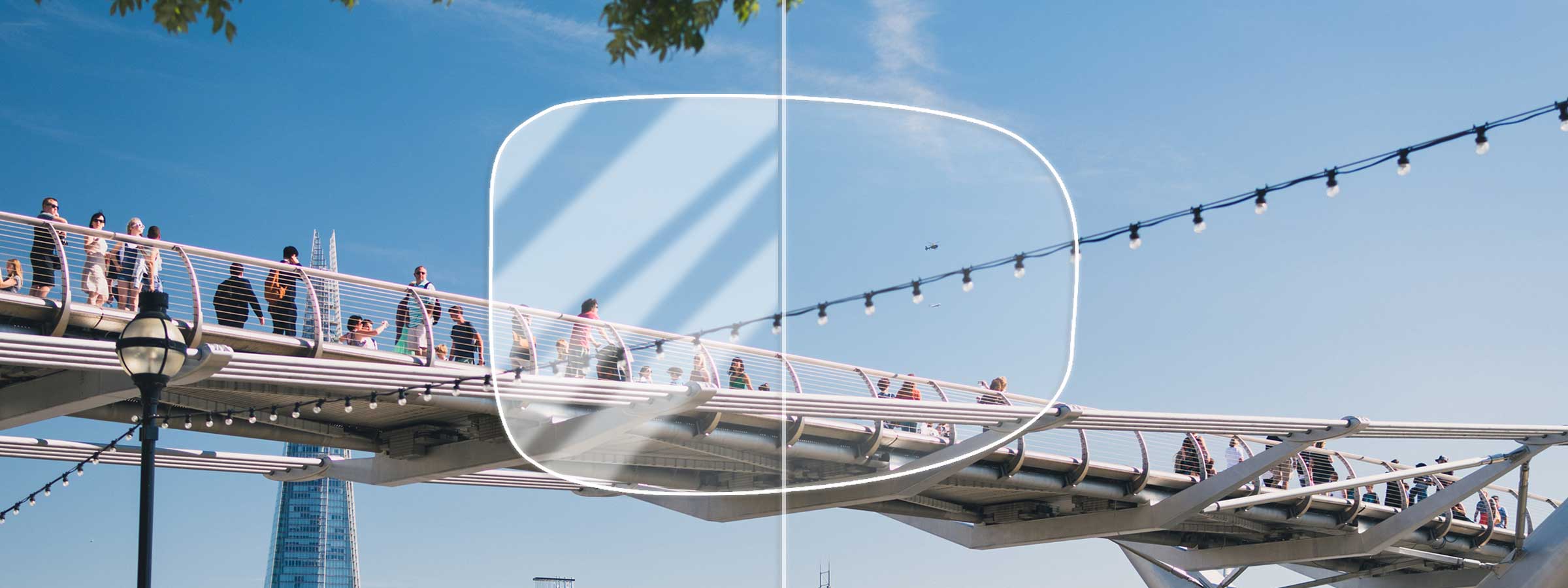
Anti-reflection coatings are also known as AR, or MAR, and comprise many different thin layers of coating to greatly reduce glare from different wavelengths of light. By reducing unwanted reflections from the lens surfaces more light is transmitted through the lens, making vision clearer. They are especially important for thin lens materials which reflect more light than standard lenses, which is why all our thinner lens packages come with an anti-reflection coating as standard.
More advanced anti-reflection coatings, such as our Lens Protect+ coating, offer other features such as water-repellent hydrophobic layers to disperse moisture, grease-resistant oleophobic layers to make them smudge resistant, and anti-static properties to keep the lenses cleaner for longer.
Anti-reflection coatings can show smudges more readily than uncoated lenses so should be cleaned regularly with a soft glasses cleaning cloth.
blublu™
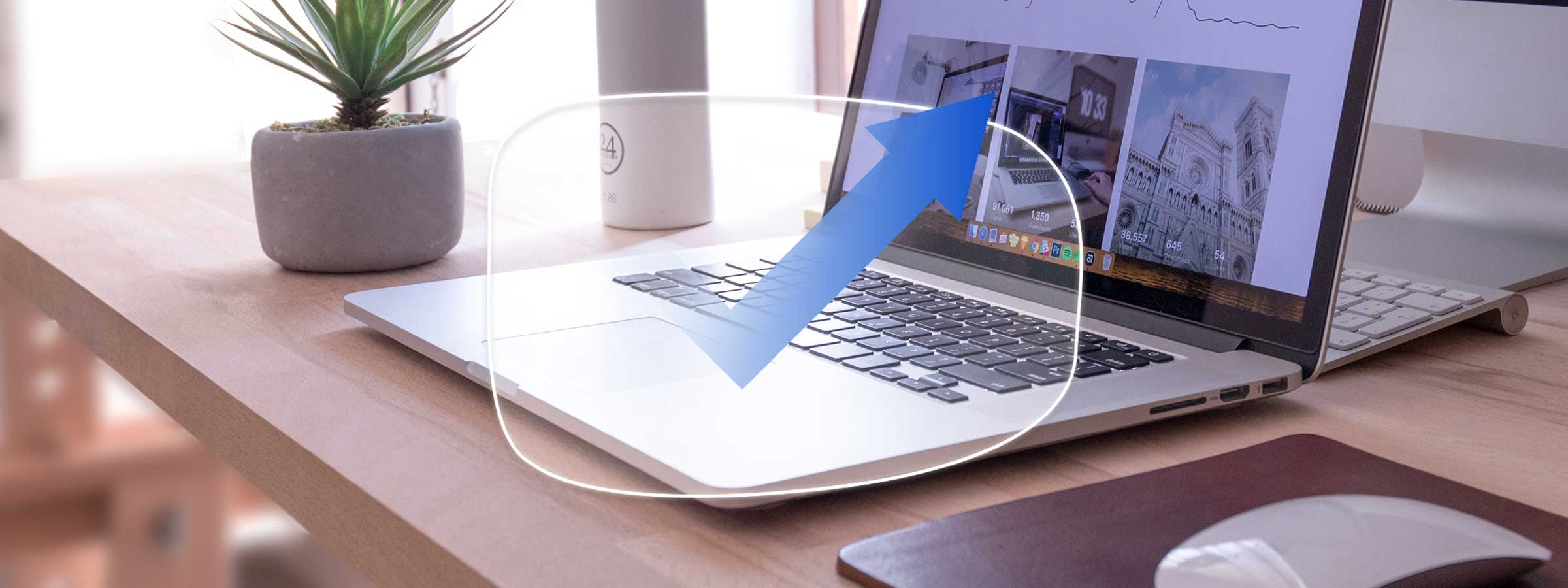
Blue Reflect™ is a specially developed type of anti-reflection coating that blocks some of the High Energy Visible blue light emitted from mobile devices. If you work at a computer a lot or spend your evenings on a tablet or mobile phone, you’ll find the Blue Reflect™ coating much more restful than looking at them without the coating. Contrast is enhanced and your eyes will feel less fatigued. They also protect you from harmful UV light and come with a built in scratch resistant coating.
Tints: solid, graduated, polarised
Plain dark tints are known as ‘solid’ tints and are available in brown, green, or grey. These are the most neutral colours to look through as they don’t distort the natural colour of things. They come with a UV400 coating to protect against UVA/B and they block out just over ¾ of the brightness of the light so are excellent on a sunny day.
Graduated tints are available in the same colours and are dark at the top, fading to almost clear at the bottom of the lens. They are especially useful for driving as they enable you to see the darker, lower parts of the dashboard clearer than a solid dark tint.
Polarised Tints
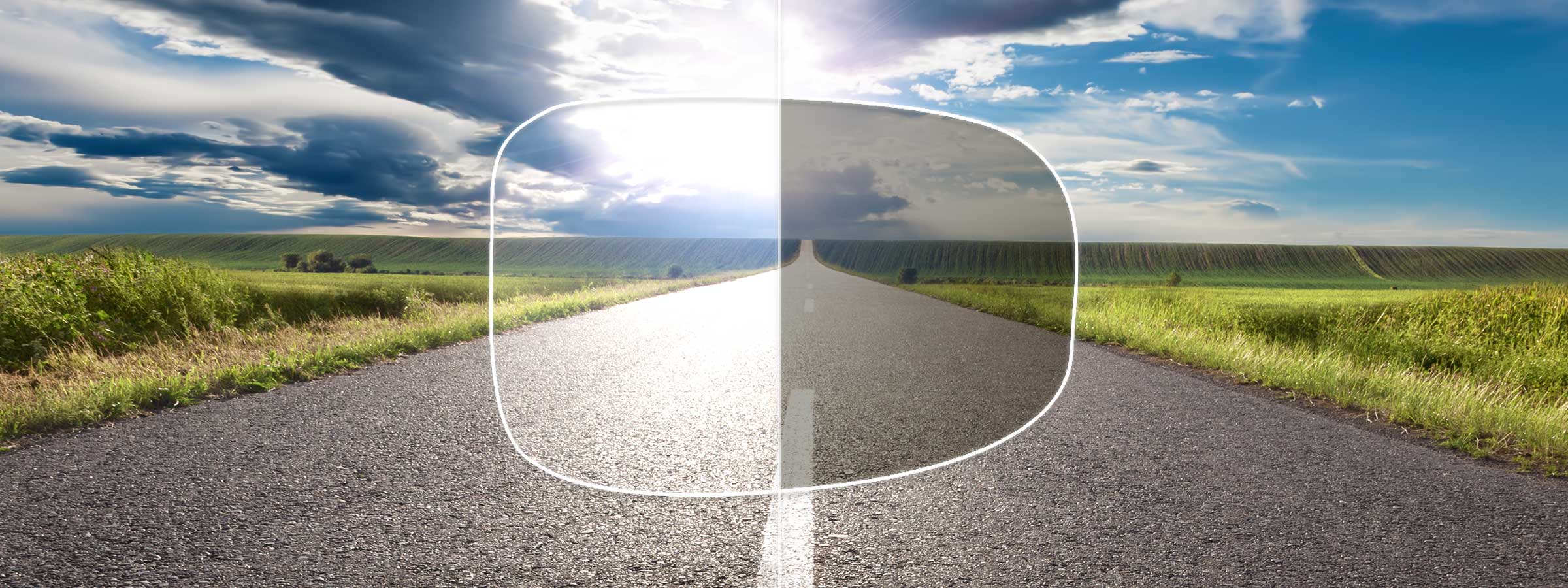
Polarised tints almost completely eliminate reflected glare and block 100% of harmful UVA/B light rays. They enhance contrast and visual comfort from sunlight reflected on water, wet roads, hazy conditions and snow.
The downside of polarised lenses is that you may not be able to see your mobile phone or other hand-held device display. This is because LCD screens are also polarised to reduce glare, and unless the polarisation is in the same direction as the polarised layer in the glasses some or all of the image will be obscured.
